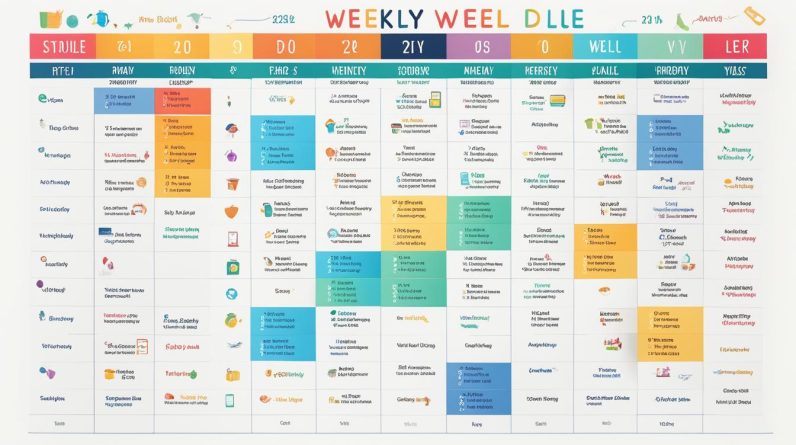Are you considering home schooling in Tennessee? Understanding the laws and options available to you is crucial for a successful educational journey for your child. In Tennessee, families have multiple opportunities for home schooling, including independent home schooling, enrollment in a church-related non-public school, or enrollment in an accredited online school. Each option has its own set of requirements and regulations that you need to be aware of. Let’s explore the different options and learn about the specific laws that govern home schooling in Tennessee.
Key Takeaways:
- Home schooling in Tennessee offers flexibility and personalized education for your child.
- Tennessee recognizes independent home schooling, church-related non-public schools, and accredited online schools as valid options.
- Independent home schoolers must submit an Intent to Home School form and comply with educational requirements.
- Church-related non-public schools provide a supervised program with their own requirements for parent-teachers.
- Accredited online schools offer an online curriculum and accredited diplomas for graduating students.
Independent Home School
Registering as an independent home school allows you, as the parent or legal guardian, to become the teacher of record and take responsibility for meeting all educational requirements according to Tennessee law. To independently home school in Tennessee, you must possess a high school diploma or a high school equivalency credential approved by the state board of education. In addition, you need to submit an Intent to Home School form to your local school district.
As an independent home school student, you will also need to take the TCAP assessment in certain grades to measure your academic progress. Don’t worry, though; home school coordinators are available in each Tennessee school district to assist your family with compliance and provide guidance when needed.
Remember: Independent home schooling empowers you to shape your child’s education while adhering to the state’s requirements.
Benefits of Independent Home Schooling
Choosing independent home schooling offers several advantages. It allows you to tailor the curriculum to your child’s unique learning style and interests. You can create a flexible schedule that fits your family’s needs and provides a conducive learning environment. You have the freedom to choose from various homeschool resources and curricula to ensure a well-rounded education.
With independent home schooling, you can foster a strong bond with your child and provide individualized attention, promoting their academic growth and personal development.
Independent home schooling also offers opportunities for experiential learning. You can plan field trips, engage in hands-on activities, and explore real-world experiences to enhance your child’s education beyond textbooks.
Homeschool Resources for Independent Home Schooling
When embarking on your independent home schooling journey, it’s crucial to leverage available homeschool resources. Local education agencies have dedicated home school coordinators who can assist you in navigating the legal requirements and connecting with other homeschooling families. These coordinators serve as valuable sources of information and support.
You can also access homeschool support groups that provide resources, advice, and a community of like-minded individuals. These groups offer opportunities for networking, sharing ideas, and seeking guidance from experienced homeschooling parents. The exchange of ideas and experiences can enrich your homeschooling journey.
Remember: Utilize the expertise and support of local coordinators and homeschool groups to enhance your homeschooling experience and ensure success.
| Homeschooling Option | Requirements |
|---|---|
| Independent Home School | High school diploma or equivalent Intent to Home School Form TCAP assessment in certain grades |
| Church-Related Umbrella School (Category IV) | Determined by the church-related school |
| Accredited Online School (Category III) | Proof of enrollment in an approved online school |
Church-Related Umbrella School (Category IV)
If you’re looking for an alternative homeschooling option in Tennessee, a church-related “umbrella” school might be the right choice for you and your child. These schools are satellite programs offered by select Category IV non-public schools, providing a supportive educational environment for homeschooling families.
As a parent or legal guardian, you have the opportunity to participate as a teacher in the church-related school under the supervision of the school’s director. This arrangement allows you to have more guidance and support while still overseeing your child’s education.
The requirements for parent-teachers are established by the church-related school. To be eligible, you must possess at least a high school diploma or a high school equivalency credential approved by the state board of education. By meeting these qualifications, you can ensure that you are adequately prepared to support your child’s learning journey.
When your child is enrolled in an umbrella school, they will receive their diploma and transcripts from the church-related school upon completion of their education. This ensures that their educational achievements are recognized and documented.
You may be wondering where to find a state-approved Category IV church-related umbrella school in Tennessee. The Non-Public Schools webpage provides a comprehensive list of these approved schools, allowing you to explore and choose the one that aligns best with your educational goals and values.
Enrolling your child in a church-related umbrella school offers various benefits, including:
- Access to a structured homeschool curriculum provided by the school
- Opportunities for extracurricular activities and socialization
- Guidance and support from experienced educators
- Validation of your child’s academic achievements through a recognized diploma
Overall, a church-related umbrella school provides a well-rounded homeschooling experience that combines the flexibility and personalization of homeschooling with the support and resources of an established educational institution.

Accredited Online School (Category III)
An accredited online school is a Category III non-public school that is accredited by a Tennessee State Board of Education approved regional accrediting agency. Parents or legal guardians must provide proof of enrollment to the local school district. Students graduating from an accredited online school receive their diploma and transcripts from the online school. It is the responsibility of the parent or legal guardian to ensure that their student has been enrolled in an online school that is approved in Tennessee.
Benefits of Accredited Online School
An accredited online school offers a flexible and convenient homeschooling option for families in Tennessee. With access to a comprehensive homeschooling curriculum, students can learn at their own pace and in a comfortable environment. Accredited homeschool programs provide a structured and recognized educational experience, ensuring that students receive a quality education. Additionally, an online school allows for a seamless transition from traditional schooling to homeschooling, offering the necessary support and resources for academic success.
Choosing the Right Accredited Online School
When selecting an accredited online school for your child, it is important to consider factors such as curriculum offerings, teacher support, and accreditation status. Look for a school that provides a wide range of courses and educational resources, ensuring a well-rounded education that meets your child’s needs. Additionally, seek out an online school that offers teacher support and guidance to assist both you and your child throughout the homeschooling journey. Lastly, verify that the online school is accredited by a Tennessee State Board of Education approved regional accrediting agency to ensure the validity and recognition of your child’s education.

| Benefits of Accredited Online School | Choosing the Right Accredited Online School |
|---|---|
| Flexible and convenient homeschooling option | Wide range of curriculum offerings |
| Structured and recognized education | Teacher support and guidance |
| Seamless transition from traditional schooling | Accreditation by Tennessee State Board of Education approved regional accrediting agency |
Homeschooling Requirements
Homeschooling requirements in Tennessee vary depending on the type of program selected by the family. It’s important to understand and comply with the specific requirements for the chosen homeschooling option. Let’s take a closer look at the requirements for each type of program:
Independent Home School
For independent home school, parents or legal guardians must possess a high school diploma or equivalent. They must also submit an Intent to Home School form to the school district. It is essential to ensure that all educational requirements are met to comply with homeschooling laws and regulations.
Church-Related Umbrella School (Category IV)
A church-related “umbrella” school is a satellite program offered by some Category IV non-public schools. Parents or legal guardians can participate as a teacher in the church-related school under the supervision of the school’s director. The specific requirements for parent-teachers are established by the church-related school. They must possess at least a high school diploma or a high school equivalency credential approved by the state board of education.
Accredited Online School (Category III)
An accredited online school is a Category III non-public school that is accredited by a Tennessee State Board of Education approved regional accrediting agency. To homeschool through an accredited online school, parents or legal guardians must ensure that the online school has legitimate accreditation status. They must also provide proof of enrollment to the local school district.
Understanding and fulfilling homeschooling requirements is crucial to ensure compliance with Tennessee’s homeschooling laws. By adhering to these requirements, parents can provide their children with a high-quality education while homeschooling.
| Homeschooling Option | Requirements |
|---|---|
| Independent Home School | – Possess a high school diploma or equivalent – Submit an Intent to Home School form – Ensure educational requirements are met |
| Church-Related Umbrella School | – Meet requirements established by the school – Possess at least a high school diploma or equivalent |
| Accredited Online School | – Choose an online school with legitimate accreditation status – Provide proof of enrollment to the local district |

Homeschool Resources
When it comes to homeschooling in Tennessee, it’s important to have access to the right resources and support. Whether you’re just starting out or looking for additional tools and guidance, there are various options available to help you along your homeschooling journey.
Local Education Agencies
Tennessee’s local education agencies have designated home school coordinators who are there to assist families interested in homeschooling their children. These coordinators can provide valuable guidance, answer your questions, and act as a point of contact for the Tennessee Department of Education. They are well-versed in the state homeschooling laws and can help you navigate the requirements for your chosen homeschooling option.
Homeschool Support Groups
Another valuable resource for homeschooling families is joining a homeschool support group. These groups offer a sense of community and provide resources, advice, and networking opportunities for parents and students alike. By connecting with other homeschooling families, you can tap into a wealth of knowledge and experience, share ideas, and find support on your homeschooling journey.
| Benefits of Homeschool Resources | Examples of Homeschool Resources |
|---|---|
| 1. Support and Guidance: Access to experienced professionals who can answer questions and provide guidance on homeschooling. | – Local education agencies – Homeschooling associations – Online forums and communities |
| 2. Curriculum and Materials: Resources to help you plan and implement a comprehensive homeschooling curriculum. | – Textbooks and workbooks – Online educational platforms – Library resources |
| 3. Co-curricular Activities: Opportunities for students to engage in extracurricular and social activities. | – Homeschool co-op groups – Community clubs and organizations – Sports teams and arts programs |
| 4. Field Trips and Educational Programs: Educational excursions and programs to enhance learning experiences. | – Museums and science centers – Nature parks and reserves – Historical sites and landmarks |
| 5. Online Tools and Courses: Virtual resources and courses to supplement your homeschooling curriculum. | – Online educational platforms – Webinars and workshops – Educational apps and software |
“Homeschool resources provide the essential tools and support needed to create a successful and enriching homeschooling experience for both students and parents. From professional guidance to curriculum materials and engaging activities, these resources empower families to tailor their child’s education and foster a love for learning.”
By utilizing the available homeschool resources and support groups, you can enhance your homeschooling experience and ensure a well-rounded education for your child.
Homeschooling Benefits
Homeschooling in Tennessee offers numerous benefits for families who choose this educational path. By homeschooling, you have the flexibility to provide your child with a personalized education that caters to their individual needs and learning style. This personalized approach ensures that your child receives the attention and support they require to thrive academically and personally.
One of the significant advantages of homeschooling is the flexibility in scheduling. You have the freedom to set your own timetable, allowing your child to learn at their own pace without the constraints of a traditional school schedule. This flexibility enables you to create a learning environment that best suits your child’s optimal learning times and routines.
“Homeschooling allows you to provide a customized curriculum that aligns with your child’s interests and abilities.”
Another benefit of homeschooling is the ability to customize the curriculum. You have the liberty to choose the homeschooling curriculum that best meets your child’s educational goals and interests. Whether you prefer a traditional approach or opt for alternative teaching methods, you can tailor the curriculum to suit your child’s learning style and strengths.
Homeschooling also fosters a close parent-child bond and creates a supportive learning environment. As the primary educator, you have the opportunity to spend quality time with your child, nurturing their intellectual growth and personal development. This close bond enhances communication and allows for meaningful discussions and exploration of various subjects and topics.

Furthermore, homeschooling provides ample opportunities for experiential learning and hands-on experiences. You can incorporate real-world applications and practical lessons into your child’s education, fostering a deeper understanding of the material. Field trips, hands-on experiments, and interactive activities bring the curriculum to life and enhance your child’s learning experience.
Many families find that homeschooling offers a well-rounded education that prepares their child for future success. Through the personalized attention, flexible scheduling, customized curriculum, and experiential learning opportunities, homeschooled students often develop strong critical thinking, problem-solving, and self-directed learning skills. These skills are invaluable in their journey towards higher education or successful careers.
Homeschooling Benefits Summary:
- Personalized education tailored to your child’s needs and learning style
- Flexibility in scheduling
- Customized curriculum to optimize learning
- Strong parent-child bond and supportive learning environment
- Opportunities for experiential learning and hands-on experiences
- Development of critical thinking and self-directed learning skills
With homeschooling, you have the power to shape your child’s education and provide them with a well-rounded learning experience that prepares them for a successful future.
Homeschooling Tips
When homeschooling in Tennessee, there are various tips and strategies you can implement to ensure a successful educational journey for your child. Here are some valuable homeschooling tips:
1. Establish a Daily Routine
Creating a daily routine and schedule is essential in maintaining consistency in your child’s learning. Set specific times for different subjects and activities to provide structure and establish a sense of routine.
2. Utilize a Variety of Resources
Diversify your curriculum by utilizing a wide range of resources and materials. Incorporate online materials, textbooks, educational websites, and interactive learning tools to keep your child engaged and excited about learning.
3. Take Advantage of Homeschooling Resources
Make use of the wealth of homeschooling resources available to you. Seek out online communities, forums, and social media groups that provide support, advice, and resources for homeschooling families. These platforms offer a valuable opportunity to connect with other homeschooling parents and exchange ideas.
4. Join Homeschool Support Groups
Connect with other homeschooling families by joining homeschool support groups in your area. These groups often organize field trips, co-op classes, and other social activities that allow your child to interact with peers and provide you with a support network.
5. Incorporate Hands-on Activities and Field Trips
Enhance your child’s learning experience by incorporating hands-on activities and field trips. Visit museums, parks, and other educational sites that align with your child’s curriculum. These experiential learning opportunities can make subjects come to life and deepen their understanding.
“Education is not the filling of a pail, but the lighting of a fire.” – William Butler Yeats
By implementing these homeschooling tips, you can create an engaging and comprehensive curriculum while fostering a supportive learning environment for your child.
Conclusion
Home schooling in Tennessee offers families the flexibility and freedom to provide their children with a personalized education. Whether you choose independent home school, enroll in a church-related umbrella school, or opt for an accredited online school, it’s essential to understand the specific requirements and regulations.
By utilizing the abundant homeschool resources and support groups available, you can find guidance, inspiration, and practical tips to enhance your homeschooling journey. Tailoring the curriculum to your child’s needs and learning style, homeschooling provides a flexible schedule and a supportive learning environment that fosters a strong parent-child bond.
Not only does homeschooling allow for individualized instruction and a customized curriculum, but it also offers benefits such as experiential learning opportunities and hands-on experiences. By incorporating effective homeschooling tips and strategies, you can create a well-rounded education for your child and prepare them for future success.
FAQ
What is independent home school?
Independent home school refers to a homeschooling option in Tennessee where the student’s parent or legal guardian serves as the teacher of record. They are responsible for meeting educational requirements and must possess a high school diploma or equivalent. Independent home school students may also need to take the TCAP assessment in certain grades. Home school coordinators in each Tennessee school district can assist families with compliance and provide support.
What is a church-related umbrella school?
A church-related umbrella school is a Category IV non-public school program offered by certain churches. Parents or legal guardians can participate as a teacher under the supervision of the school’s director. Requirements for parent-teachers are established by the church-related school, and students enrolled in an umbrella school receive their diploma and transcripts from the church-related school. A list of state-approved Category IV church-related umbrella schools is available on the Non-Public Schools webpage.
What is an accredited online school?
An accredited online school is a Category III non-public school in Tennessee that is accredited by a state-approved regional accrediting agency. Parents or legal guardians must provide proof of enrollment to the local school district. Students graduating from an accredited online school receive their diploma and transcripts from the online school. Parents or legal guardians are responsible for ensuring that the chosen online school is approved in Tennessee.
What are the homeschooling requirements in Tennessee?
Homeschooling requirements in Tennessee vary depending on the chosen program. For independent home school, parents or legal guardians must possess a high school diploma or equivalent, submit an Intent to Home School form, and ensure educational requirements are met. Church-related umbrella schools have their own requirements determined by the school. Accredited online schools must have legitimate accreditation status and provide proof of enrollment to the local district.
What homeschool resources are available in Tennessee?
Tennessee offers various resources to support homeschooling families. Each local education agency has designated home school coordinators who can provide guidance and act as a point of contact with the Department of Education. Homeschool support groups are also available, offering resources, advice, and networking opportunities for homeschooling families.
What are the benefits of homeschooling in Tennessee?
Homeschooling in Tennessee offers personalized education tailored to a child’s individual needs and learning style. It provides flexibility in scheduling and allows for a customized curriculum. Homeschooling fosters a strong parent-child bond and creates a supportive learning environment. It also offers opportunities for experiential learning and hands-on experiences, preparing students for future success.
What tips can you provide for homeschooling in Tennessee?
It is important to establish a daily routine and schedule for consistent learning. Utilize a variety of resources and materials to create an engaging curriculum. Take advantage of online materials, textbooks, and educational websites. Join homeschool support groups for advice and networking opportunities. Incorporate hands-on activities and field trips to enhance learning, and don’t forget to take breaks and find a balance between academics and other activities.






